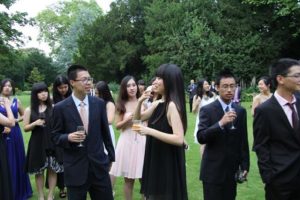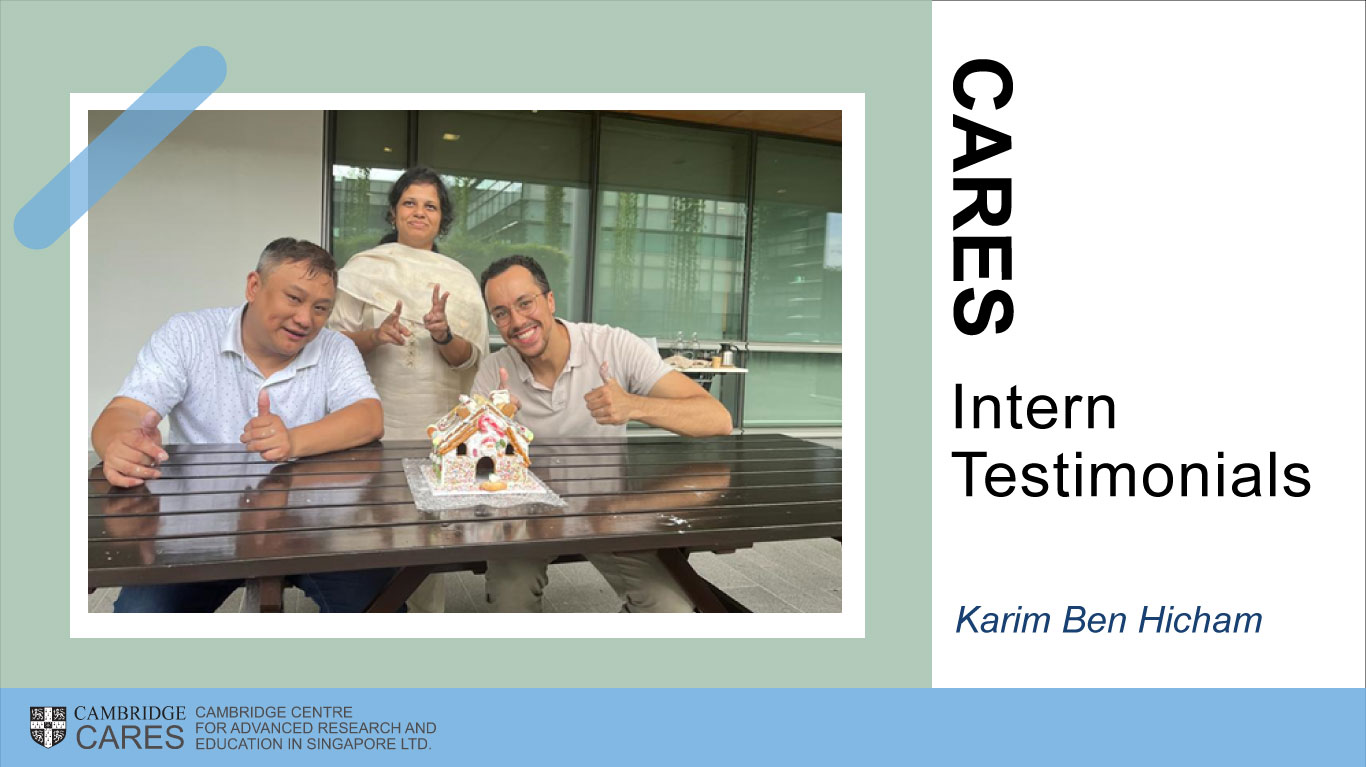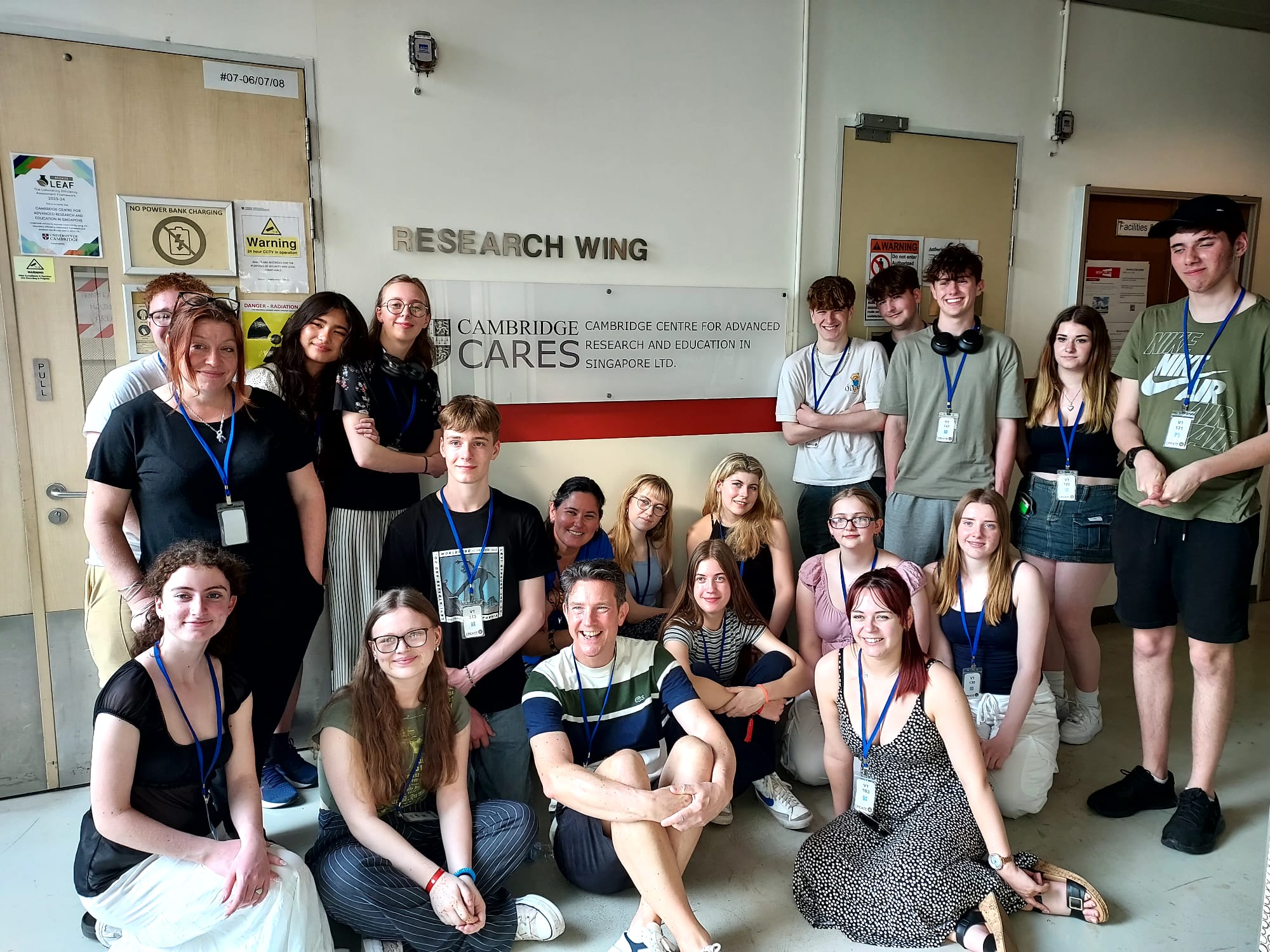From July 3rd – 24th 2014, the Global Chemical Technologies Programme (GCTP), was hosted by the Cambridge Centre for Carbon Reduction in Chemical Technology (C4T), situated on the Campus for Research Excellence and Technological Enterprise (CREATE) in Singapore and in the Department of Chemical Engineering & Biotechnology, Cambridge. The broad aim of the course was to expose the undergraduate delegates to living and studying overseas as a research student and offered the opportunity to visit leading University research laboratories at National University of Singapore, Nanyang Technological University and in Cambridge. Specialist lectures from academics gave the technological background and future challenges for the global economy with a focus on Chemical Technology. The formal academic course was complemented by visits to industrial laboratories, CREATE partner Universities (University of Berkeley & Technische Universität München) and the A*Star Institute of Chemical and Engineering Sciences.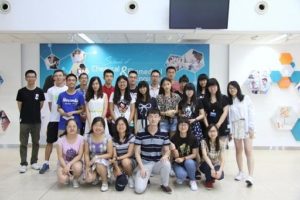
Global Chemical Technologies Programme 2014 Highlights
The first leg of the 2014 GCTP schedule saw the students visit Singapore, with the course focused on exploring a selection of the unique research environments that are located on the Island. The formal programme began with a visit to the Nanyang Technological University (NTU) Campus located in the south west of the country. Here the delegates were given an introduction to the CREATE campus and the research activities of the new Cambridge C4T research centre based there, (www.cares.cam.ac.uk). The students were given an overview of the 4 key research themes of the centre: Multi-scale Studies of Catalytic and Adsorption Technologies; Electrochemical Multi-scale Science, Engineering and Technology; Carbon Abatement in the Petroleum Refining Industry, a Control and Optimisation Network; Integrated Chemical and Electrical Systems Operation.
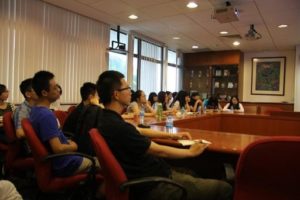
After the CREATE introductory session, students were given an overview of NTU research and undergraduate programmes by Professor Xin Wang. This was followed by presentations and research tours including visits to the laboratories in the School of Chemical and Biomedical Engineering (SCBE, www.scbe.ntu.edu.sg), where the students were able to meet and talk in detail to current researchers working at SCBE.
The next section of the programme looked at the role of the Agency for Science, Technology and Research (A*Star, www.a-star.edu.sg), the students were hosted by the Institute of Chemical and Engineering Sciences (ICES, www.ices.a-star.edu.sg), based on Jurong Island. The visit involved a tour of Jurong Island. This reclaimed land has been developed strategically by the Singapore community to house around 100 leading global petrochemicals and speciality chemicals companies, with around $42 billon invested to date. Dr Ann Chow presented the key objectives of the A*Star Institutes and gave a broad overview of the research activities of ICES and the opportunities to either study or work with the institute in the future. The students were then taken on an extensive tour of the institute to see the impressive research and pilot plant facilities that are housed at ICES.
The GCTP programme continued on the 4th July, with a visit to the new CREATE building and campus. Here the hosts of the visit were the University of Berkeley and Technische Universität München (TUM). Dr Matthew Sherburne presented the Berkeley programmes (crest.berkeley.edu/bears.html), in Building Efficiency and Sustainability in the Tropics (SinBer BEST) and Singapore-Berkeley Research Initiative for Sustainable Energy (SinBerRISE). The TUM visit showed the current progress on an electric car designed specifically for a taxi role in tropical megacities (www.eva-taxi.sg).
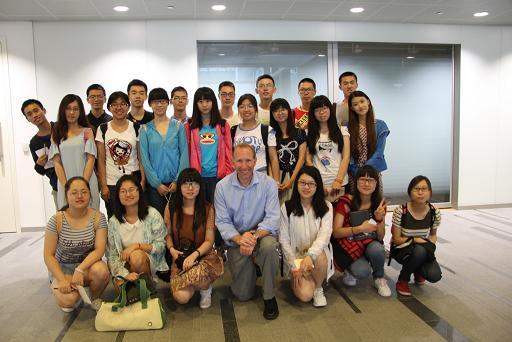
Following the CREATE visit the students transferred onto the nearby campus of National University of Singapore (NUS), hosted by the Department of Chemical and Biomolecular Engineering (ChBE, www.chbe.nus.edu.sg). Professor Jim Yang Lee, the ChBE Head of Department, gave an introduction to NUS and key research activities on the campus. Research tours and presentations by Professor Jim Yang Lee and a member Professor Erik Birgersson’s group gave delegates a detailed insight into life as a researcher at the University.
Socially the delegates were able to explore the campuses and the vibrant city of Singapore, before travelling on to the UK and the City of Cambridge, where they were based in Christ’s College, (www.christs.cam.ac.uk). The UK leg of the programme was hosted by The Department of Chemical Engineering & Biotechnology (CEB) involving tours, case studies and enterprise activities hosted by University academics, research partners, companies and external consultants. The week began with a traditional garden party at Christ’s College and a chance to see the world famous Tour de France (www.letour.com) that visited Cambridge as part of Stage 3 of this years race.
In Cambridge the academic programme kicked off in CEB, with talks and tours of the Department and this was followed by industrial presentations by Dr Andrew York from Johnson Matthey (www.matthey.com) and Dr Nathan Lawrence, Schlumberger Gould Research (SGR) Centre (www.slb.com). The delegates were then given a tour of the SGR centre, meeting staff and students working onsite.
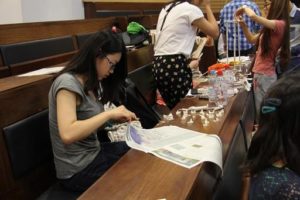
The second week of the programme saw the delegates move to The Department of Engineering to see the state of the art research and begin their Case Study projects. This part of the programme was led by Dr Jize Yan and members of the Cambridge Centre for Smart Infrastructure & Construction (www-smartinfrastructure.eng.cam.ac.uk). A day workshop by Christine Dunne on leadership skills (www.christine-dunne.com) completed the formal course.
To celebrate the completion of the taught programme Christ’s College hosted a formal dinner for the team and delegates. Following a day of rest the delegates began the final part of their stay with a tour of the UK including the leading Universities of London and Oxford, before returning to Beijing.